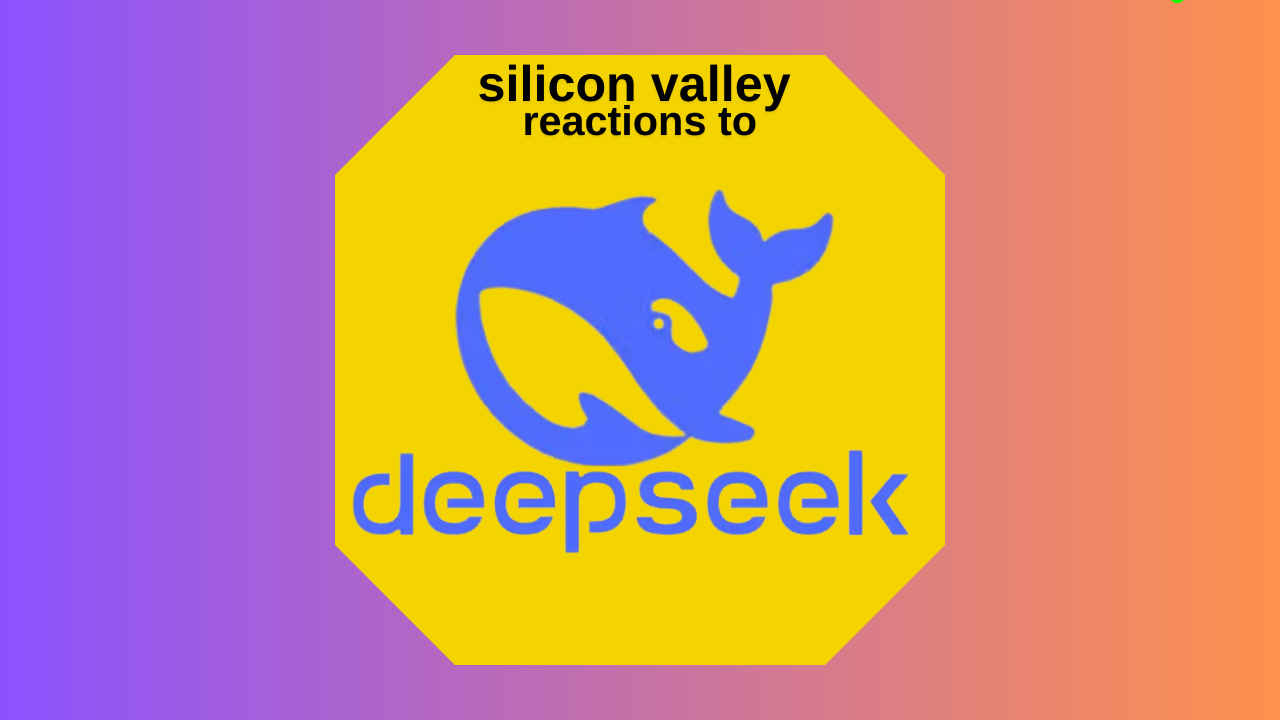DeepSeek praised by Silicon Valley: The $6 million AI disruption

In the world of AI, where American tech giants like OpenAI, Google, and Nvidia have long reigned supreme, a new player has emerged to disrupt the status quo. DeepSeek, a Chinese AI startup founded in 2023, has stunned the global tech community with its R1 model.
 Survey
SurveyDeveloped on a modest budget of under $6 million using reduced-capability NVIDIA H800 chips, R1 has outperformed some of the most advanced AI systems in the world. Its success has sparked both admiration and anxiety across Silicon Valley, raising questions about the future of global AI dominance.
‘Sputnik moment’ for AI
The shockwaves began when DeepSeek’s R1 system surpassed OpenAI’s GPT-40 and Meta’s Llama 3.1 in third-party benchmark tests across tasks like complex problem-solving, coding, and mathematics. Unlike its American counterparts, which have poured billions into AI development, DeepSeek achieved this feat with remarkable efficiency.
Also read: Deepseek R1 vs Llama 3.2 vs ChatGPT o1: Which AI model wins?
As Yann LeCun, Chief AI Scientist at Meta, noted on LinkedIn: “DeepSeek has profited from open research and open source (e.g., PyTorch and Llama from Meta). They came up with new ideas and built them on top of other people’s work. That is the power of open research and open source.” LeCun’s comments reflect the collaborative ethos that underpins DeepSeek’s success – a stark contrast to the heavily capitalised approaches of U.S. tech giants.

Marc Andreessen, co-founder of Andreessen Horowitz and a prominent venture capitalist, called DeepSeek’s achievement “one of the most amazing and impressive breakthroughs I’ve ever seen.” In a post on X (formerly Twitter), he likened it to an “AI Sputnik moment,” drawing parallels to the Soviet Union’s launch of Sputnik during the Cold War – a moment that spurred intense competition between global superpowers. Andreessen also praised DeepSeek’s commitment to open-source development, describing its R1 model as “a profound gift to the world.”
While many celebrated DeepSeek’s innovation, others expressed concerns about its implications for U.S. competitiveness in AI. Neal Khosla, CEO of Curai, took a sceptical stance, labelling DeepSeek’s narrative as “a CCP state psyop” designed to destabilise American dominance by faking low costs to disrupt market pricing. Though his claims were met with little evidence and some criticism for their speculative nature, they highlight broader anxieties about China’s growing influence in AI.
Also read: DeepSeek R1 on Raspbery Pi: Future of offline AI in 2025?
The emergence of DeepSeek has also had tangible economic repercussions. On Monday morning, Nasdaq futures dropped nearly 2%, reflecting investor fears about potential disruptions to the U.S. tech market.
Chris Mattmann, Chief Data and AI Officer at UCLA, explained why DeepSeek is causing such alarm: “Absolutely it [scares American companies] because [DeepSeek] democratises the capabilities for solving complex math and also more principled logic, which previously was only available generally by purchasing OpenAI and other licenses.” The idea that cutting-edge AI could now be developed with fewer resources has shaken confidence in Silicon Valley’s resource-intensive strategies.
Garry Tan, CEO of Y Combinator, offered a more optimistic perspective on X: “If training models get cheaper faster and easier, the demand for inference will grow and accelerate even faster.” His comments reflect a belief that innovations like DeepSeek’s could lower barriers to entry in AI development, fostering greater competition and innovation across the industry.

Also read: DeepSeek AI: Beyond ChatGPT, 5 ways DeepSeek is rewriting AI rules
Aravind Srinivas, CEO of Perplexity AI, echoed this sentiment while congratulating DeepSeek for becoming the #1 app on Apple’s App Store in the U.S.: “Congrats to @deepseek_ai for getting to #1 on the App Store… Look forward to using all their models for search, assistant, and agents this year.” Srinivas highlighted how necessity drove DeepSeek’s efficiency: “Necessity drives innovation… As long as it’s mathematically possible, you can always find more efficient approaches.”
DeepSeek hype going beyond Silicon Valley
The implications of DeepSeek’s rise extend beyond Silicon Valley. At the World Economic Forum in Davos last week, Microsoft CEO Satya Nadella urged global leaders not to underestimate China’s advancements in AI: “We should take the developments out of China very, very seriously.” His remarks come as President Donald Trump announced Stargate – a $500 billion private-sector initiative aimed at bolstering America’s AI infrastructure. However, scepticism abounds regarding whether such projects can match China’s rapid pace of innovation.
Founded by Liang Wenfeng under Chinese hedge fund High-Flyer Quant in 2023, DeepSeek represents a new wave of Chinese startups challenging Western dominance in technology. Its success has reignited debates about resource efficiency versus capital intensity in AI development. While U.S. companies like Meta are expected to spend upwards of $65 billion on AI this year alone, DeepSeek has demonstrated that ingenuity can often outpace sheer financial might.
As Silicon Valley scrambles to respond to this unexpected challenger, one thing is clear: DeepSeek has redefined what is possible in artificial intelligence – and it has everyone watching closely.
Also read: DeepSeek vs ChatGPT and NVIDIA: Making AI affordable again?
Sagar Sharma
A software engineer who happens to love testing computers and sometimes they crash. While reviving his crashed system, you can find him reading literature, manga, or watering plants. View Full Profile